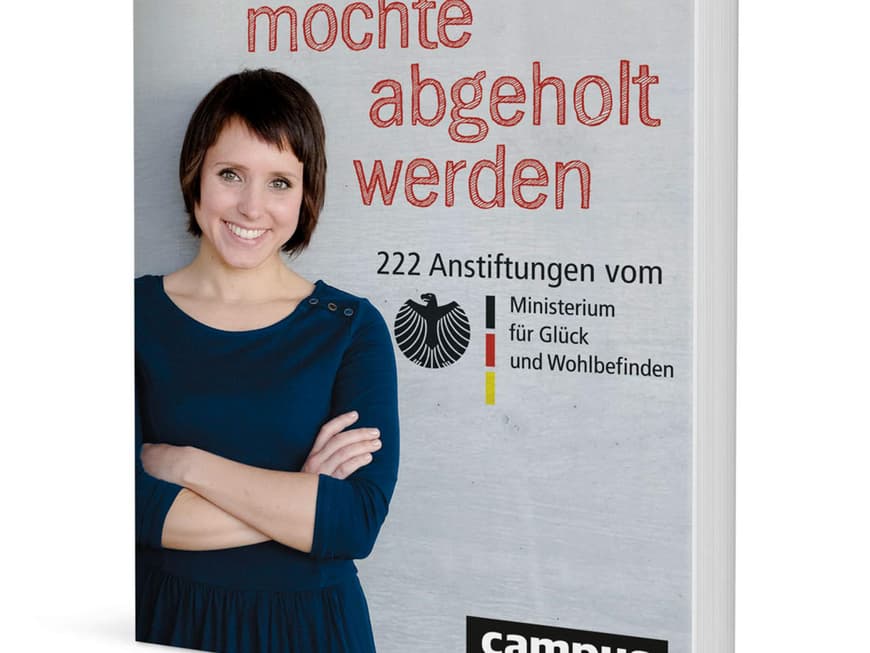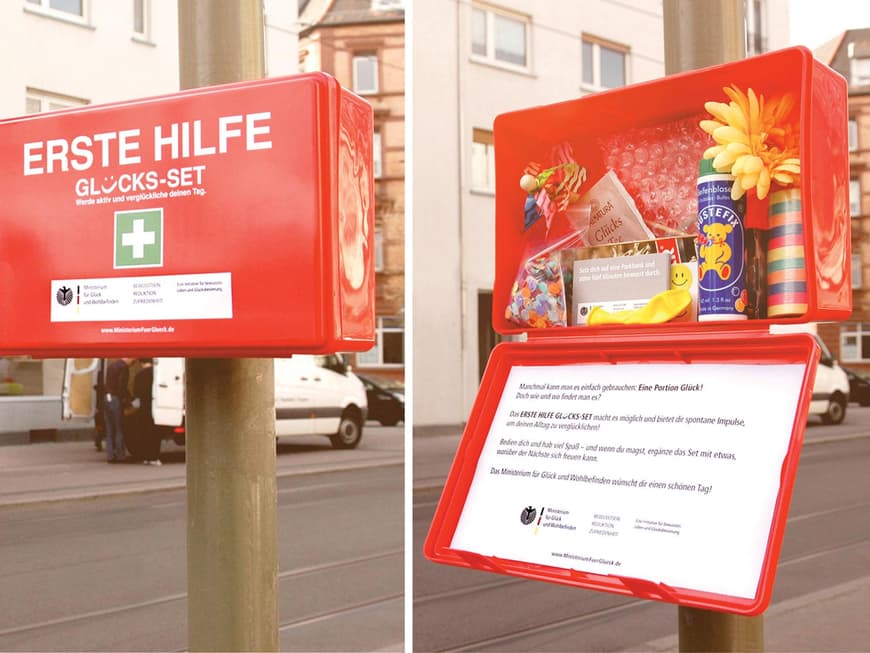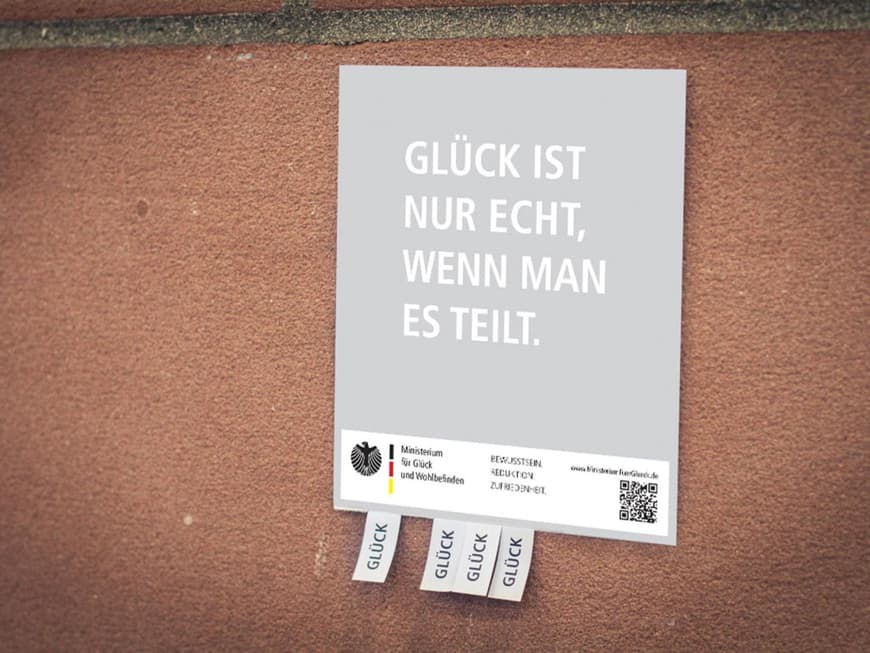And then?
Gina Schöler: The question "What makes me happy?" is usually automatically followed by thoughts like: What do I want anyway? Which people are good for me? How do I want to shape my environment? And as you find out bit by bit, you get to know yourself better. And you can then act according to your needs. More or less, this also means that you become happier.
How can I get to know myself even better?
It helps to use your gut feeling and sharpen your sensory perception. This has a lot to do with mindfulness. Eat with your fingers again, feel the warmth of a hot bathtub on your skin, cook your favorite dish! I try to have regular dates with myself. I call it my "Me Day", a day or half a day that is just for me. I often don't even know what I want to do during this time, whether I'm going to the sauna or sitting on the sofa. But it definitely gives me the opportunity to restart the computer in my head. To find answers and raise new questions.
You don't have a magic formula?
No. Personal happiness is as individual as we are, but it's more about everyday things, not about turning your whole life upside down. I like to compare it to an expedition: you can't climb Mount Everest from one day to the next. First you have to pack your equipment, put together a good team and train. Then you set off. Maybe you sprain your ankle and have to take a break. Or you might take the wrong turn and have to go back again. But in the end, you keep going. It can happen that you end friendships or quit your job. That's part of the process. But the bottom line is that you're better off afterwards than you were before.
How has your life changed since you became a Minister of Happiness?
The "Ministry ofHappiness and Wellbeing" came about in 2012 when I was studying to become a communication designer. I didn't know anything about the topic at first. I did some research and sat down with various happiness experts, for example from the field of psychology. My perception of life and my own environment has changed dramatically since I have been studying happiness so intensively. Today, I see the happiness around me and within myself much more clearly. As a result, I have developed a whole new sense of gratitude and appreciation. And when I see something beautiful or something beautiful happens to me, I can pass it on. I'm much more likely to say things like: "It's great that that happened!"
Like what?
A totally warm interpersonal encounter, for example with the cashier at the supermarket. These days I'm much more likely to say: "Hey, it's great that you stay so calm and always have a kind word, even though it's stressful." I draw new strength from this, which also makes me happy on another level. You can think of it like a chain. First I perceive things, be it sensory impressions or encounters. When I perceive them, I can appreciate them. And if I appreciate them, I can let them grow and pass them on. A little nudge and people carry happiness into their everyday lives.
Is that also your task as Minister of Happiness?
I want to inspire people in a variety of ways. I put ideas out into the room. For example, via Facebook, with a happiness notice board or with campaigns such as the happiness suitcase hanging on the street lamp. When you open the suitcase, it says: "Take out what you need and put something in for the next person." Such actions are intended to irritate people. To arouse their curiosity about the topic so that they think: "That's funny. I'll take a photo of that and tell them about it at dinner tonight." I also organize other hands-on activities, such as pen pals. It's really great to see how people take the ideas further. It can create a real wildfire. I just provide the impetus.
You have compiled 222 of these ideas for happiness in a book.
These ideas also arose from a participatory campaign. For example, I encouraged people via Facebook to send in their personal stories of happiness. And no two stories were the same. The palette was so colorful! I deliberately don't give any recipes for happiness because I don't know what will help you personally. An action that one person might take for granted is a huge step out of their comfort zone for another. However, I have already encouraged two people to do a parachute jump. They had been meaning to do it for a while and because the idea was in the book, they finally went for it. Sometimes it just takes a little tickle to get you going.
So does leaving your comfort zone make you happy?
Not always, not every day. The comfort zone is great. It's cozy and safe. But it certainly helps to keep challenging yourself. Be it professionally, socially or in everyday life. You can learn something new, meet new people and maybe even prove something to yourself.
Do you also experience this personally?
Definitely. I know situations well where I feel anxious, for example when I have to give a presentation in front of hundreds of people. Then I take a deep breath and ask myself: what could possibly go wrong? The worst thing would be that I fall on my nose on stage and everyone laughs. But then I would have achieved what I want: for everyone to laugh!
You should accept what comes?
Yes, life is a river. If you're constantly swimming against it, it's incredibly exhausting. But if you let go and ride the waves, a lot of cool things can happen. Even if the water is up to your neck. That's why my formula for happiness is: "(allow) change".
If you were officially the Minister of Happiness, what would you do?
First of all, I would make sure that someone from the ministry was always present at all political meetings, discussions and the signing of contracts to say: Listen up! Does what we decide really make the population happier? And if the answer was "no"? Then I would veto it.
Interview: Nele Langosch










